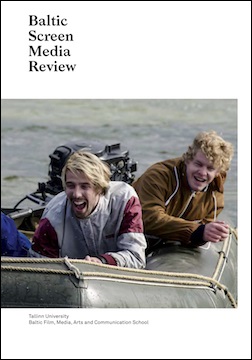Make Love at War? Representing Gender and Memory in the Soviet Estonian Film Dark Windows (Pimedad aknad, Tõnis Kask, 1968)
Make Love at War? Representing Gender and Memory in the Soviet Estonian Film Dark Windows (Pimedad aknad, Tõnis Kask, 1968)
Author(s): Liis JõhvikSubject(s): Cultural history, Gender history, Fascism, Nazism and WW II, Film / Cinema / Cinematography, Sociology of Art, History of Art
Published by: Tallinna Ülikooli Balti Filmi- ja Meediakool
Keywords: Dark Windows; Estonian cinematography; interpersonal relations; everyday life; World War II; gender; Estonian national filmography;
Summary/Abstract: Initially produced in 1968 as a three-part TV miniseries, and restored and re-edited in 2008 as a feature-length film, Dark Windows (Pimedad aknad, Tõnis Kask, Estonia) explores interpersonal relations and everyday life in September 1944, during the last days of Estonia’s occupation by Nazi Germany. The story focuses on two young women and the struggles they face in making moral choices and falling in love with righteous men. The one who slips up and falls in love with a Nazi is condemned and made to feel responsible for the national decay. This article explores how the category of gender becomes a marker in the way the film reconstructs and reconstitutes the images of ‘us’ and ‘them’. The article also discusses the re-appropriation process and analyses how re-editing relates to remembering of not only the filmmaking process and the wartime occupation, but also the Estonian women and how the ones who ‘slipped up’ are later reintegrated into the national narrative. Ultimately, the article seeks to understand how this film from the Soviet era is remembered as it becomes a part of Estonian national filmography.
Journal: Baltic Screen Media Review
- Issue Year: 2018
- Issue No: 6
- Page Range: 20-37
- Page Count: 18
- Language: English

